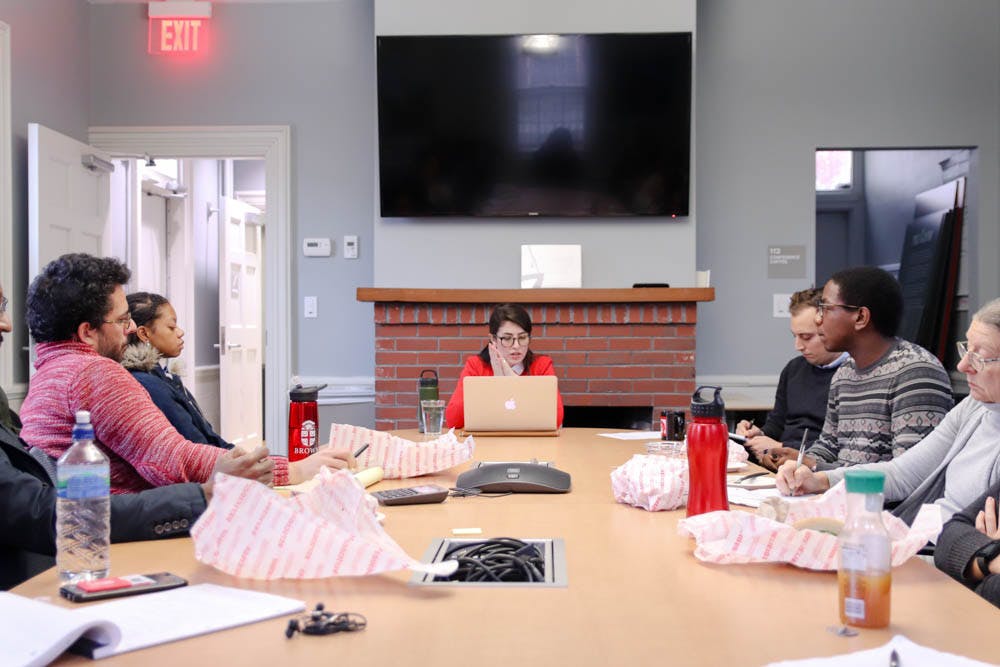For Rutgers University PhD Candidate Kelsey Lizotte, reparations are about far more than a monetary exchange.
At the Center of the Study of Slavery and Justice’s Emerging Scholar lunch series, Lizotte presented her doctoral dissertation, “Rethinking Reparations: A Critical Theory of Black Repair.” She researches in the Division of Global Affairs and is a lecturer in the writing program at Rutgers.
The CSSJ is a research center that investigates slavery’s contemporary effects through an interdisciplinary public humanities lens, according to its website.
While studying reparations, Lizotte noticed a lack of focus on the history of the reparations movement in both scholarship and more mainstream discourse. In her own research, she seeks to prove that “a successful movement for black reparations today could benefit from a better historical understanding of the past and of intellectual traditions that have informed it and sparked it from the beginning.”
Lizotte said that current projects based only on financial compensation are misguided. In her dissertation, she instead proposed a “critical theory of black repair” to guide future policy programs by focusing on institutional and structural change. In her view, “true systemic social transformation is the primary goal of reparations from slavery and its legacy.”
In her talk, Lizotte recounted the tale of Belinda, a former slave who petitioned the state of Massachusetts for monetary compensation in 1783. Her petition successfully resulted in £15 of reparations. Despite the fact that this tale is commonly recounted as a triumph for the reparations movement, Lizotte argued that “our focus is misplaced.”
“In order to really rethink the concept of repair, focus on this early period should be shifted away from individuals to group efforts,” she said. While she explained that group legislative efforts do not dominate literature on reparations because they were not immediately successful, Lizotte still believes they can serve as a model for future repairs.
At the talk, Lizotte proposed her own guidelines for reparations. She said that legislative action should be a central mechanism for repairs and that compensation should be given to communities as a whole. She proposed transferring wealth from financial institutions to communities that have suffered the most from the legacy of slavery.
Recognition is also central to Lizotte’s framework for reparations. She noted that in 2009, the U.S. Senate offered an apology for the government’s role in slavery. But Lizotte said that this apology only accounted for the years of slavery from 1619 to 1865 and did not acknowledge the extended legacies of slavery.
In order to officially consider a policy a reparation, Lizotte believes it must intentionally aim to rectify slavery’s extensive legacy and disrupt the status quo.
Program Coordinator of Engaged Black History and Justice Scholars Marco McWilliams similarly stressed the limitations of purely compensatory reparations in an interview with The Herald. He believes that someone could hand over a sum of money and still degrade him as a person of color or not believe in the legacy of slavery.
As mainstream discourse around reparations evolves, Lizotte emphasizes that “if we understand the harms of slavery to be structural violence, the forms of reparation need to reflect that.”





